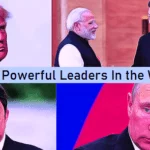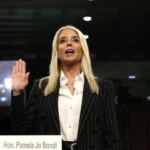The Kingdom of Spain is a constitutional monarchy where the kind plays the role of the prime minister and the state head as the head of government. The Prime Minister is otherwise called the leader of the Government of Spain.
This office of the top state leader was laid out by the 1978 Constitution however can be followed back to 823 as the chairmanship of the Council of Ministers.

Prime Ministers Of Spain
Carlos Arias Navaro
Carlos Arias Navaro, born in December 1908, was a vocal and well-known government official, particularly during the standard of Francisco Franco. In spite of the fact that he was a moderate chief toward the start of the transformation to democracy, Navaro transformed into a hard-liner and was engaged with the White Terror, marking numerous executive orders during the destruction of the Spanish Republic, acquiring the name “Butcher of Malaga.” Following the death of Luis Carrero Blanco, Navara was designated Prime priest in 1973, a position he held during the change to a majority rules government. He left the situation on July 1, 1976, in dissent to the changes by King Juan Carlos I, Navaro kicked the bucket in November 1989.
Fernando De Santiago Y Díaz
Whenever Carlos Navaro surrendered in July 1976, he was briefly supplanted by Fernando de Santiago y Díaz who was the representative state leader of Defense. Born in July 1910, Santiago was a functioning warrior who took an interest in both the Spanish Civil War and Second Moroccan War. Prior to turning into Spain’s delegate state head and interval state head, he was designated the lead representative general of Spanish Sahara where he presented restricted home rule in the district. Santiago filled in as the between-time Spanish chief from July 1 to July 3, 1976, and was supplanted by Adolfo Suarez.
Adolfo Suarez
Adolfo Suarez was the main Spanish Prime Minister chosen justly in the Second Spanish Republic. He was one of the critical figures in the progress of a democratic system. He was first elected the Prime Minister on July 3, 1976, instead of Carlos Navaro who had surrendered two days prior. He was delegated by King Juan Carlos with the expectation that his administration would achieve a majority rules system. In spite of the fact that he was not a notable political figure in Spain and many even questioned his initiative, Suarez managed the finish of Francoist Cortes and drove his party (UDC) to the 1977 general political race win. He surrendered in 1981 and resigned from politics in 1991.
Leopoldo Calvo-Sotelo
Leopold Calvo Sotelo was naturally introduced to a noticeable political family in Madrid on 14 April 1926 with his dad, Leopoldo Calvo Sotelo, and his mom, Mercedes Bustelo Márquez. The death of his uncle, José Calvo Sotelo, who had been financed to serve under Miguel Primo de Rivera, was a key occasion paving the way for the Spanish Civil War. Calvo-Sotelo graduated as a structural designer from the School of Civil Engineers of Madrid currently part of the Technical University of Madrid, working in the space of utilizations of science to the industry.
He was the president of RENFE (the Spanish public railroad organization) somewhere in the range of 1967 and 1968. Calvo-Sotelo was chosen specialist (Deputy) of Franco’s Cortes, addressing industrialists in the Union of Chemical Industries, in 1971.
Felipe Gonzalez
Felipe Gonzalez born on 5 March 1942) is a Spanish legal counselor, teacher, and government official, who was the Secretary-General of the Spanish Socialist Workers’ Party (PSOE) from 1974 to 1997, and the third Prime Minister of Spain since the rebuilding of a democratic system, from 1982 to 1996. He stays the longest-serving Prime Minister of Spain to be unreservedly chosen.
González joined the PSOE in 1964 when it was restricted under the Francoist system. He got a regulation degree from the University of Seville in 1965. In 1974, the PSOE chose González as its Secretary-General after a split in its 26th Congress. After Franco’s death and the start of the Spanish change to a majority rules government, González acquired a seat in the Congress of Deputies after he drove the PSOE application in the 1977 general political decision, however, lost to Adolfo Suárez.
José Maria Aznar
José Maria Aznar, conceived 25 February 1953) is a Spanish politician who was the top state leader of Spain from 1996 to 2004. He drove the People’s Party (PP), the predominant middle-right ideological group in the country at that point.
An individual from the Frente de Estudiantes Sindicalistas, a student association where a 16-years of age Aznar embraced a free brand of Falangism, he acquired a law degree from the Complutense University of Madrid and his first occupation was in the public area, explicitly, as an Inspector of the Finances of the State (Spanish: Inspector de las Finanzas del Estado). He joined the Popular Alliance, which was re-established as the People’s Party in 1989. He drove the Junta of Castile and León from 1987 to 1989 and was the Leader of the Opposition at the public level from 1989 to 1996. In 1995, he survived a death endeavor from the Basque separatist group ETA.
José Luis Rodriguez Zapatero
José Luis Rodríguez Zapatero born on 4 August 1960) is a Spanish legislator and individual from the Spanish Socialist Workers’ Party (PSOE). He was the Prime Minister of Spain being chosen for two terms, in the 2004 and 2008 general elections.[2] On 2 April 2011, he declared he wouldn’t represent re-appointment in the 2011 general political race and left office on 21 December 2011.
Among the primary activities taken by the Zapatero, the organization was the withdrawal of Spanish soldiers from the Iraq war, the increment of Spanish soldiers in Afghanistan; the possibility of an Alliance of Civilizations; the sanctioning of same-sex marriage in Spain; change of abortion law; a peace negotiation endeavor with ETA; increment of tobacco limitations; and the change of different independent rules, especially the Statute of Catalonia.
Pedro Sánchez
Pedro Sánchez is a Spanish lawmaker who has been Prime Minister of Spain since June 2018. He has likewise been Secretary-General of the Spanish Socialist Workers’ Party (PSOE) since June 2017, having recently held that office from 2014 to 2016.
Sánchez started his political profession in 2004 as a city councilor in Madrid, prior to being chosen for the Congress of Deputies in 2009. In 2014, he was chosen Secretary-General of the PSOE, becoming Leader of the Opposition. He drove the party through the uncertain 2015 and 2016 general races, however, surrendered as Secretary-General soon after the last option, following public conflicts with the party’s chief. He was along these lines reappointed in an administration political decision eight months later, overcoming Susana Díaz and Patxi López.


